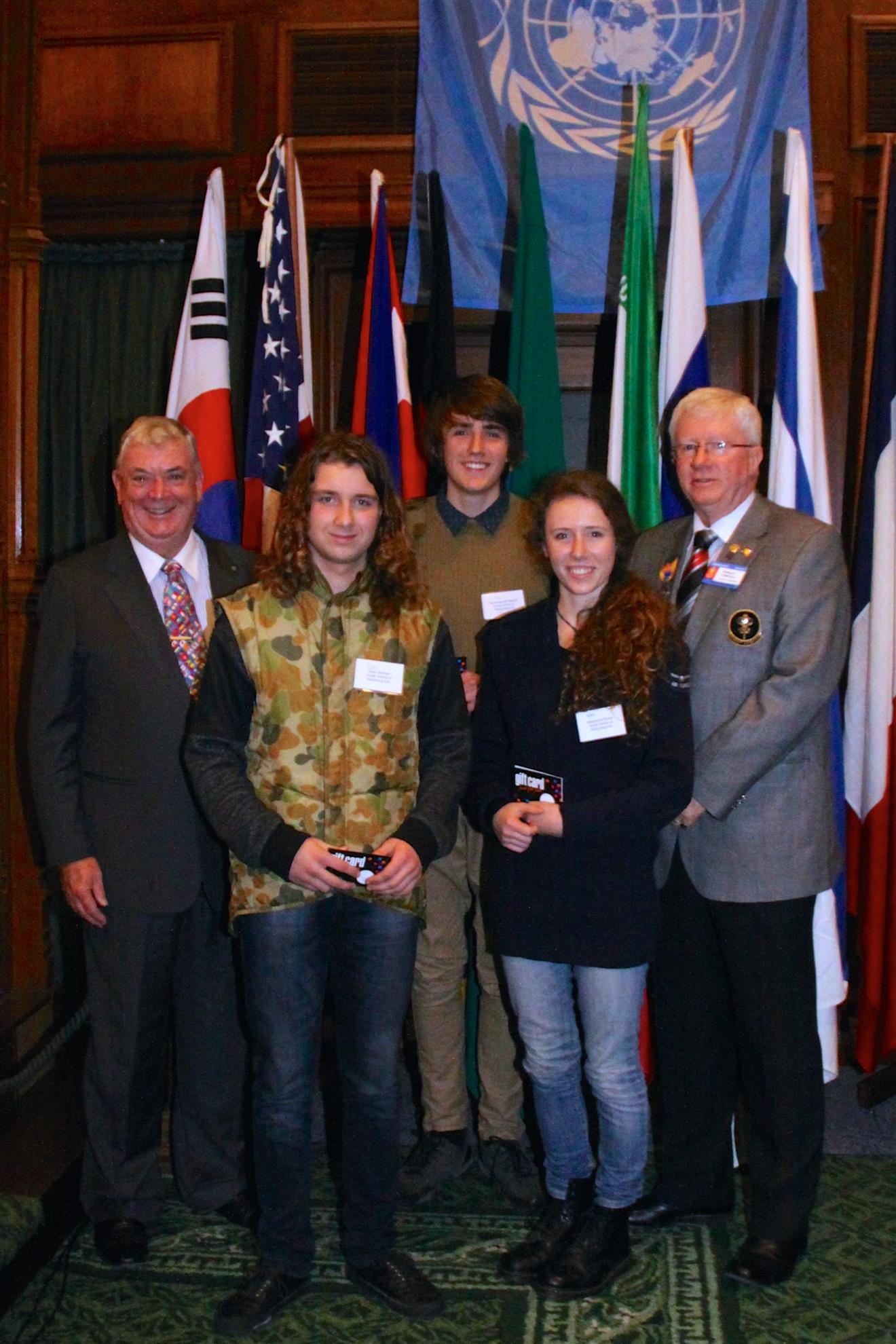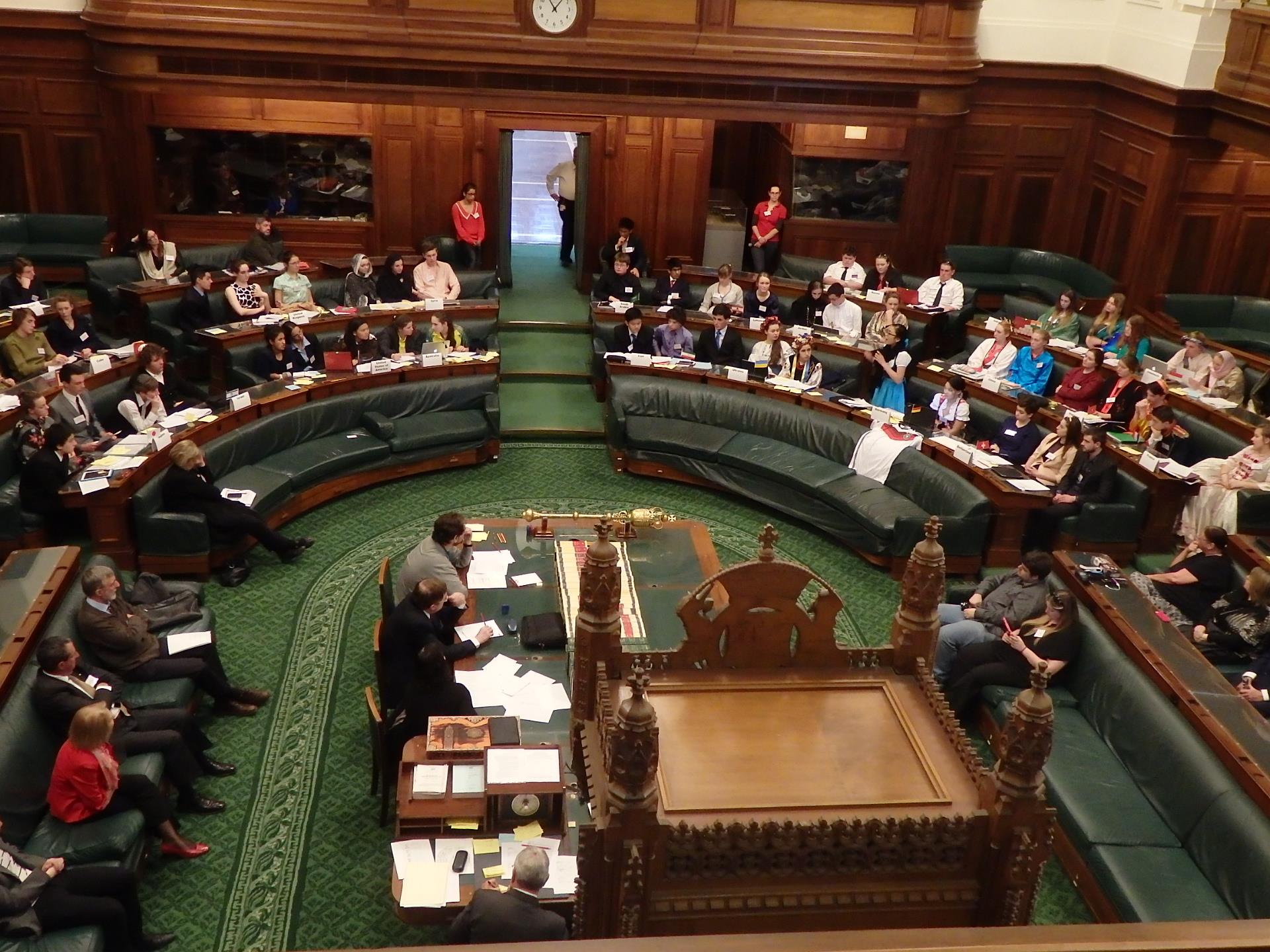National Model United Nations Assembly A Great Success
Posted by pnh
The National Model United Nations Assembly (MUNA), conducted over the weekend of 15-17 August by the Rotary Club of Canberra Sunrise was again a great success. Twenty four teams (64 Year 10-12 students) from as far North as Tweed Heads and as far South as Tasmania, congregated in Canberra for a weekend of spirited debate on six current world issues including Ukraine territorial integrity, the situation in the Syrian Arab Republic and return and restitution of cultural property to the country of origin. Each team had been allocated a country to represent, and each had clearly researched their country's position on the resolutions in the lead up to the event. Some had taken the opportunity to visit their country's embassy or consulate to gain a further insight into the resolutions.
It wasn’t all hard debate though – students were privileged to visit Government House, touring both the ground floor and the grounds, and were treated to a gala dinner at Bruce Hall, ANU, where they heard Anthony Regan speak on some of the UN’s successes in our own region (specifically East Timor and Bougainville). Thanks go to our major sponsor, the Australian national University; to Rotaract, which helped man the debating sessions; and Rostrum, which supported the adjudication process.
MUNA aims to increase the students’ sense of international understanding and goodwill, which is one of the primary goals of Rotary International. Rotary believes that it is through our youth that hopefully we can look forward to increased world peace. It was first introduced to Rotary in Australia at Lake Cargelligo, NSW in 1980 and the concept was then passed on to the Forbes Rotary Club in 1984. Since then, MUNA has spread throughout most districts of Australia, New Zealand and Papua New Guinea. In 1989, the then President of Rotary International, Royce Abbey, placed MUNA on the World Youth Activities Committee Agenda for Rotary and similar sessions are now held in many countries.

|
 |
 |
A Special Assembly was held on Friday night for the teams to work in their blocs and to agree which of the ten draft resolutions would be debated and the speaking order for and against for the initial speakers for each resolution. This session was great for students to get to know their bloc members and to develop some early strategies. The level of debate was again of a high standard, across the board. It was great to see many of the student's putting considerable thought and research into their speeches, and working in blocs to develop or bring down other's positions. There were times of good humour as well, including some great byplay between Israel, Cuba and the USA. The Australian delegation received some fairly tough criticism in relation to some of our Government's current policies, but did well to counter on a number of aspects.
It was this year quite difficult to select the prize winners, with many strong contenders just missing out. The winners of the awards this year were:
1st: Cuba, Hunter School of Performing Arts, D9670
2nd: Ukraine, Sacred Heart Girls College, RC Oakleigh
3rd: Iran, Sydney Boys High, D9675
4th: Nigeria, St Vincents College, D9675
Special mention was also made of the excellent depth of research done by teams from Canberra College (Switzerland, sponsored by RC Woden Daybreak) and Mac.Robertson Girls High School (Germany, sponsored by District 9800).
The perpetual trophy for contributions to world peace, the Totenhofer Peace Prize, went to United Kingdom, Daramalan College, RC Canberra North.